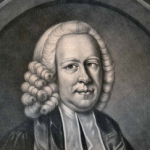 The following excerpt is taken from The Evangelistic Zeal of George Whitefield by Steven Lawson.
The following excerpt is taken from The Evangelistic Zeal of George Whitefield by Steven Lawson.
Whitefield was convinced that any presentation of the gospel must begin by exposing the listener’s sin and his dire need for salvation. This necessitated the preacher’s confronting his hearers’ rebellion against God and warning of the eternal consequences of their rejection. Whitefield plainly understood that none rightly desire the gospel of Christ until they know of their own condemnation before God. Whitefield preached those truths that reveal sin, namely, the holiness of God, the fall of Adam, the demands of the law, the curse of disobedience, the certainty of death, the reality of the final judgment, and the eternality of punishment in hell.
When addressing the unregenerate masses, Whitefield sought to ensure that their depravity was fully laid bare. Martyn Lloyd-Jones aptly stated, “No man could expose the condition of the natural unregenerate heart more powerfully than George Whitefield.” Only when confronted with their sinfulness, Whitefield insisted, would unbelievers seek to embrace Christ as their Savior and Lord. He peeled back the outer layers of people’s self-righteousness in order to bring about self-awareness of their sinful hearts.
The work of evangelism mandated that he address the eternally devastating effects of sin in his preaching. Whitefield, like a watchman on the tower, warned of sin, death, and judgment. He sought to disturb his listeners with their lost condition before a righteous Judge in heaven. “The sin of your nature, your original sin, is sufficient to sink you into torments, of which there will be no end,” he preached. “Therefore unless you receive the Spirit of Christ, you are reprobates, and you cannot be saved.” He believed the lost must be driven to the brink of utter desperation before they will come to faith in Christ.
Whitefield was a master at sweeping away all useless rhetoric in order that the unconverted would recognize their desperate need to repent. He implored them, “You are lost, undone, without Him; and if He is not glorified in your salvation, He will be glorified in your destruction; if He does not come and make His abode in your hearts, you must take up an eternal abode with the devil and his angels.” None who heard Whitefield were put to sleep with a false sense of security.
Pointing back to Adam’s transgression, Whitefield emphasized that all are born with an inherited sin nature from the first man. He declared, “We all stand in need of being justified, on account of the sin of our natures: for we are all chargeable with original sin, or the sin of our first parents.” It was this strong belief in original sin and total depravity that caused his every sermon to drive his listeners to grasp a sense of their desperate condition in sin. All humanity is born spiritually dead, he believed:
Can you deny that you are fallen creatures? Do not you find that you are full of disorders, and that these disorders make you unhappy? Do not you find that you cannot change your own hearts? Have you not resolved many and many a time, and have not your corruptions yet dominion over you? Are you not bondslaves to your lusts, and led captive by the devil at his will?
Whitefield’s sermons were filled with vivid warnings of the horrific dangers of remaining in a state of sin. In his sermon “Walking with God,” he warned that hell may be but one step away for them: “For how knowest thou, O man, but the next step thou takest may be into hell? Death may seize thee, judgment find thee, and then the great gulf will be fixed between thee and endless glory for ever and ever. O think of these things, all yet that are unwilling to walk with God. Lay them to heart.” Whitefield understood that gospel preaching must include the threat of hell, which is intended to drive men to flee to Christ and escape His terrors.
By such strong statements, Whitefield shined a sin-exposing spotlight into the dark crevasses of depraved hearts. Only then would sinners flee to the foot of the cross of the Lord Jesus Christ to hear about a Savior who died for their guilty souls.
